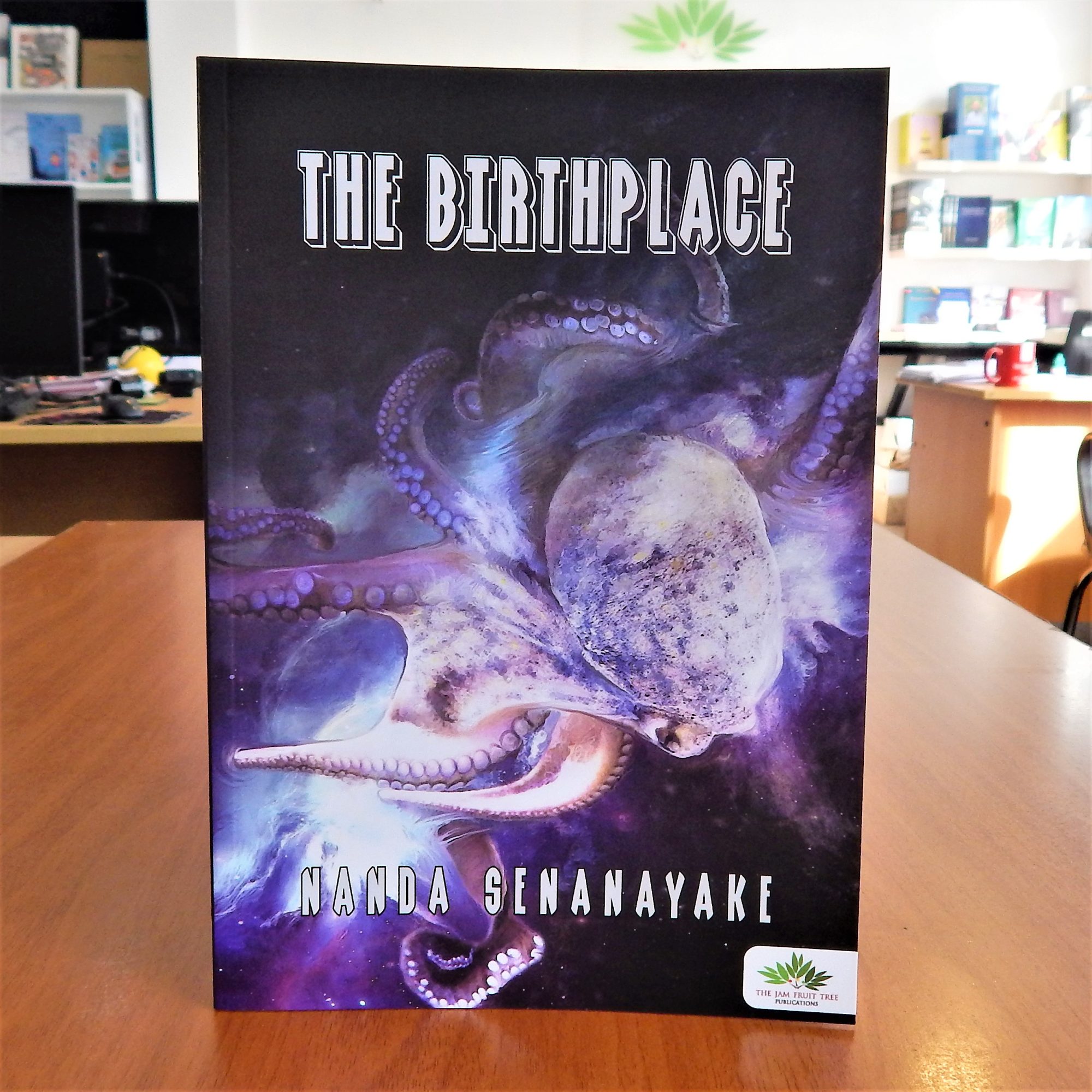What makes a good science fiction story? You need all the skills of a ‘regular’ writer – storytelling, characterisation, description, eloquence, pacing, structure, insight – but you must also get the science “right enough” to be believable.
In Nanda Senanayake’s book, ‘The Birthplace’, he does just that. The attention to scientific details, however theoretical, can startle the reader at times into wondering, “Why didn’t I think of that before?”
But let’s get down to the tale itself, shall we? John Croft, our protagonist, is a professor of Marine biology and is part of a selected team of six intellectuals on a mission to make first contact with an alien species that lay claims to the planet Earth.
Are these creatures truly here to ‘reclaim’ their planet? Or are they offering to peacefully co-exist? Are they friendly, or are they formidable foe? Are they our saviours, or portents of the desolation of human life on planet Earth?
Attorney-at-Law Nanda Senanayake pens a thought-provoking novel that not only races along in exciting adventure and drama, but also provokes the reader’s mind into exploring and questioning the roots of the universe – offering an alternate origin, if you will – and life as we know it.
Let us take a look at an excerpt from his novel, a rather comical exchange between the alien species and humans.
“We know everything you know. We have managed to learn almost everything about you through your internet. Since we have mastered the entirety of your knowledge; which we think is rather backward, you are at a disadvantage since you know nothing of us. This transfer of your mastery material to non-biological primitive machines is lamentable. It may benefit humans for a database of knowledge, albeit it appears that any new knowledge is becoming increasingly theoretical at best, but mostly outright fabrication borne of the delusions of certain entities, with no sound basis in logic or fact.”
“So you criticise the internet, but still you gained all your knowledge from this same platform?” Hoot said.
Blue disregarded Hoot’s comment. “Any hostile alien entity can approach or access your bases within seconds. Any alien entity can hack your systems and make life miserable for earthlings. Access to Earth’s computers is possible within nano-seconds. You have transferred your brain functions to very fragile machines called computers.”
This was increasingly beginning to sound like a lecture about how absolutely inadequate the human race was to deal with any alien life form.
“These primordial machines are weak and easily destroyed!” continued Blue. “Imagine a world without your internet. We would have to study humans and their interaction with the planet for years to gather sufficient information. Our physical presence and examination of your species would be necessary to gain information. But at a touch of a button, we accessed your bases and we know what you are and are not capable of. You actually believe that these computers are able to function better than a human brain. This is a myth. You have grown to become lazy in exerting the power of your minds. Your computers would be obsolete if earthlings could function to their fullest capacity,” Blue went on, pounding every point he made home with the thrusting of a tentacle.
Ouch! Imagine being lectured by first contact about how dumb we are making ourselves by gluing ourselves to our screens!
Nanda Senanayake was born in Kegalle and his love for science fiction began with his fascination for the unknown; the search for answers that could only be given by breaking the boundaries of know science and use of the imagination to fill in the blanks.
On how he came up with idea for his debut novel, ‘The Birthplace’, Nanda comments, “The story existed in my head for a long time. I always felt that there were these vast gaps in the story of human evolution, gaps that did not make sense to me, and no scientific theories exist to fill in or explain these voids. A large part of the premise of ‘The Birthplace’ is founded on my explanation of what happened during these times.
Nanda also explores concepts of immortality, and the unlocking of mankind’s true potential. What is exciting to learn is that the author is now working on a second science fiction novel – a sequel to ‘The Birthplace’ – titled ‘The Devil’s Dictionary in the 21st Century’.
Residing in Kandy, Nanda Senanayake speaks about the sad lack I writers of the genre and would love to see more Sri Lankan authors tackle the imaginative and creative world of science fiction. “Reading science fiction and fantasy can help us make sense of the world. Rather than limiting our capacity to deal with reality, these stories may expand our ability to engage reality based on science,” says Nanda, reiterating his love for the genre.
by Jeremy Muller
Courtesy: Sunday Observer, 16 Oct 2022

